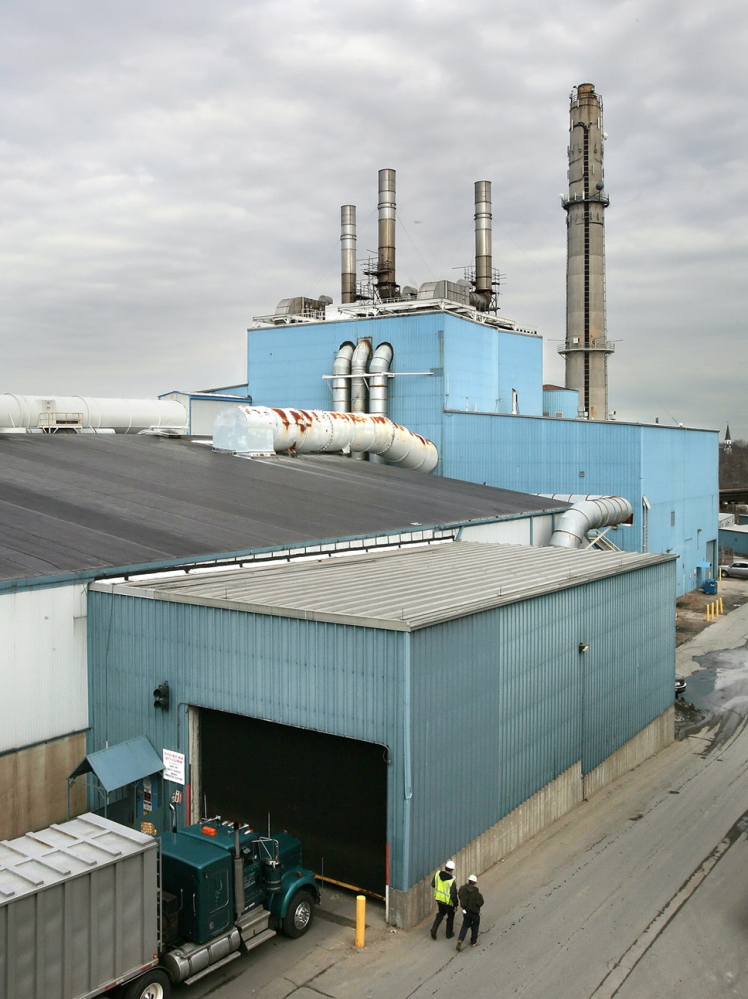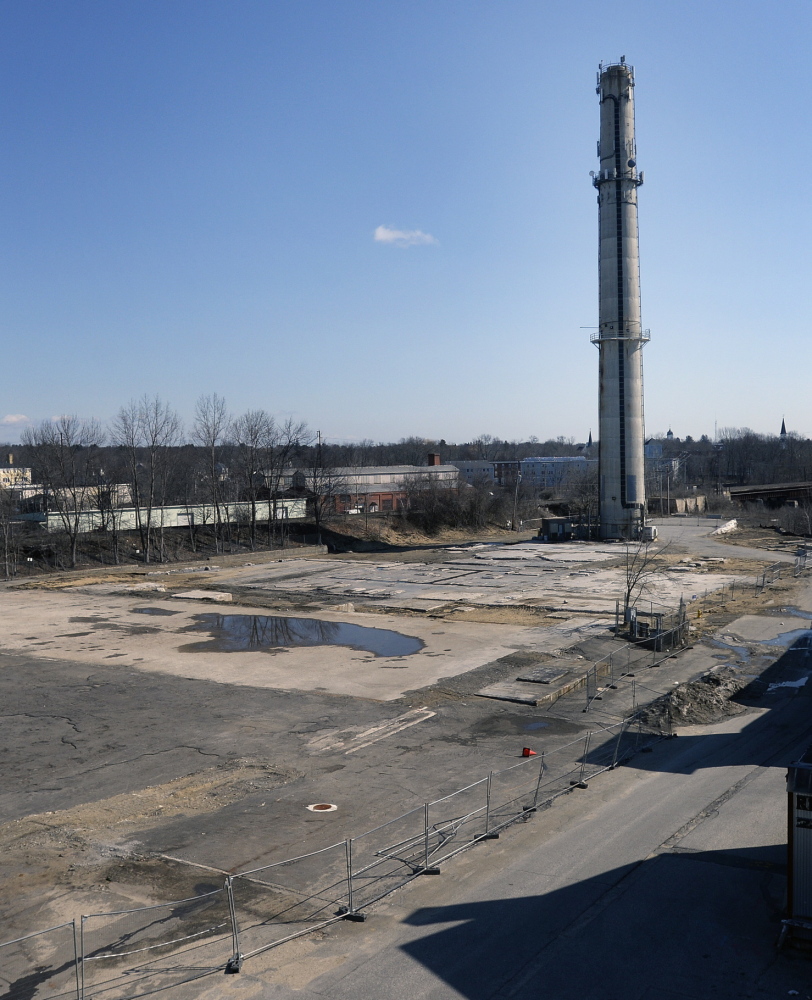More than a year after Biddeford purchased a controversial downtown trash incinerator, the city is moving to redevelop the riverfront property in the heart of the historic mill district.
City officials this week will launch a two-pronged effort to identify redevelopment options for the 8.5-acre site, something several city councilors called a key step toward renewed economic prosperity for the mill district and the downtown.
“This is, without any doubt, the biggest game changer we will have seen for years and that we’re going to see for decades to come,” Councilor Marc Lessard said of the redevelopment during a Biddeford City Council meeting last week. “If we don’t use this as a catalyst, we’ll be completely missing the opportunity we have.”
City officials this week plan to issue a request for proposals for a market study to determine the highest and best use of the property, which the city purchased in 2012 for $6.65 million. At the same time, the city will issue a request for letters of interest from developers who may already have redevelopment ideas for the land.
For nearly three decades, the Maine Energy Recovery Co. trash incinerator generated complaints about odor, pollution and truck traffic. When the facility closed after the City Council voted to buy the property, city leaders expressed hope its departure would usher in a new era of economic development for an old mill town once dubbed “Trashtown USA.”
The focus on the MERC site comes at a time when the city is experiencing an economic resurgence, with new businesses along Main Street and in the city’s sprawling mill complex.
“The purchase and the elimination of Maine Energy was a game changer,” said Mayor Alan Casavant, adding that many developers and entrepreneurs have told him they’re willing to invest in the city now that the trash incinerator is gone.
After Casella, the Vermont-based parent company of MERC, closed the Biddeford facility at the end of 2012, the entire building was demolished as part of the plan to clean up the property on Lincoln Street. Now only a concrete slab and the smokestack, which contains cellphone towers that generate money for the city, remain. Environmental remediation will conclude this year.
Conducting the market and feasibility study is the next step to poise the property for redevelopment, said Daniel Stevenson, the city’s director of economic and community development. Even without that step, city officials have received phone calls and emails from people interested in developing the property.
“I have received a number of calls and emails from different people (about what) should be on that site, everything from making it a surface parking lot to a summer flea market,” he said. “What I really want to be clear about is it’s an extremely valuable property for Biddeford. How this site gets redeveloped sets the stage for the next century. It’s right on the Saco River and right in the middle of our downtown core.”
The city is looking for a market analysis of primary and secondary market areas, including key economic and demographic trends; an assessment of recent developments in commercial, retail and light industrial markets; and an assessment of regional industries such as tourism. The goal, Stevenson said, is to ensure the city gets the best possible return on its investment.
To pay for the study, the city will use money from the Route 111-mill district tax increment financing district, which sets aside funds to support downtown redevelopment.
Stevenson said having this type of study done will make the property even more attractive to prospective developers because it will provide a better sense of what uses would be the best fit for the property, the mill district and the city in general.
After the study is done, the city will launch a nationwide search for developers. In the meantime, it will solicit letters of interest from developers.
Stevenson said the study will be valuable not only for developers, but also for city officials because it will spell out the best way to market the property.
“Just because we have a vacant piece of land doesn’t mean developers drop out of the sky. You don’t put out a sign and say, ‘Anyone want to buy it for $10 million?’ ” he said. “The purchase of the property shows the city is willing to invest in itself. The private sector wants to invest in communities that invest in themselves. It was a bold move by the council.”
Once the feasibility study is done later this year, the City Council will play an integral role in deciding what kind of development is done at the MERC site, Stevenson said.
Councilor Bob Mills said he thinks the spot would be perfect for a civic center. Others in Biddeford envision a riverfront concert venue or a mixed-use complex with retail stores and housing.
Councilor Michael Ready said the redevelopment of the site has the potential to significantly broaden the city’s tax base, which could potentially lower property taxes.
“The decision that is made of who we end up partnering with is going to be one of the most important decisions we make, tying in with the vision of the city for the next 20, 40 or 100 years,” he said during a recent council meeting. “This is really an important step and I’m happy we’re at the beginning.”
Gillian Graham can be contacted at 791-6315 or at:ggraham@pressherald.comTwitter: grahamgilliangrahamgillian
Send questions/comments to the editors.





Success. Please wait for the page to reload. If the page does not reload within 5 seconds, please refresh the page.
Enter your email and password to access comments.
Hi, to comment on stories you must . This profile is in addition to your subscription and website login.
Already have a commenting profile? .
Invalid username/password.
Please check your email to confirm and complete your registration.
Only subscribers are eligible to post comments. Please subscribe or login first for digital access. Here’s why.
Use the form below to reset your password. When you've submitted your account email, we will send an email with a reset code.